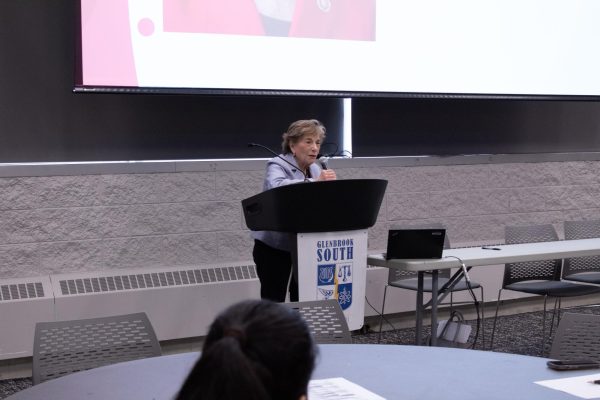Homework policy to be revised based on district-wide recommendations
November 4, 2016
The Board of Education implemented a new district-wide policy this July in order to increase the effectiveness of homework and make the amount assigned more manageable. The board is currently working to complete the accompanying list of principles in hopes that it will be finalized by this winter.
According to the new District 225 policy, homework should be used primarily for the benefit of student education, and not as discipline. The length of assignments are to be determined by teachers’ judgement and their department supervisor; the Superintendent will act as a guide to ensure that District homework policies are based on “current research and best practices.”
Principal Lauren Fagel explained that although the initial homework policy has been officially implemented, the proposed coexisting principles are merely recommendations for teachers on how to productively utilize homework, while being mindful of other activities or classes students may be involved in.
“[The board will] finalize and inform teachers of the things that [they] should be mindful of when assigning homework,” Fagel said. “They are suggestions. They are guidelines, not mandates.”
Dr. Rosanne Williamson, assistant superintendent for educational services, agreed with Fagel but said that another factor in delaying an official vote on the principles was the board’s trust in GBS and GBN teachers.
“If you looked at our homework policy, it does speak to teachers’ professional judgment,” said Williamson. “I think we want to do things in the spirit of trusting the professional judgment of our teachers, but also understanding the professional conversations around things like homework.”
According to Williamson, last year during the strategic planning initiative, data collected from student, parent, and teacher interviews revealed the common opinion that students receive too much homework. From the feedback Williamson received, it was concluded that 69-70% of students believed they were assigned too much homework. 35% of parents and teachers agreed.
“The initial data that we collected in strategic planning led to the development and implementation of the homework policy that was adopted by the board in July,” Williamson explained. “Because the policy calls for [the establishment] of principles, that’s where we are right now.”
According to Williamson, in addition to the feedback obtained last year, the board has also referred to a number of research articles regarding the educational value of homework and the appropriate amount that should be assigned. They have also asked the GBS Student Council, GBN Student Advisory, as well as teachers and parents from both schools for their opinions on the developing policies, according to Williamson.
“I would say that these principles are informed by research that tell us that generally, [these policies are] what good homework looks like,” Williamson said.
Saarah Bhaiji, GBS student council member, says the proposed principles that advise teachers to minimize or completely refrain from assigning homework during times such as the Variety Show were appealing to her.
“[The concept of] homework-free zones stood out the most,” Bhaiji said. “ I know how crazy those times get and if I didn’t have to do homework during that time I would be so much more happy and so much less stressed.”
Gracie Hambourger, GBS student council member, believes that the proposed principle encouraging teachers to explain how each assignment directly benefits and correlates to the curriculum best resonated with her.
“I’ve done a lot of busy work and if [that were added to the homework plan] then I would be gaining a lot more from doing my homework,” Hambourger explained. “It will be an [effective deterrent of student stress] because it will force teachers to think about what homework they’re giving us and it would also make the students understand that we do have a say in what homework we’re getting.”
According to Fagel, some of the proposed principles encourage teachers to foster student ownership, provide opportunities for students personal expression, provide students with options in how to complete homework in a way that aligns with their individual learning style, avoid assigning homework over breaks, and strive for consistency in quality and quantity.
“I think of they’ll serve as a really good basis of discussion for groups of teachers,” Fagel said. “I think they’ll also lead some teachers to think more carefully about how much they assign, what they assign, and how meaningful it is.”
Although, as of right now, the board has only spoken to Student Council members, other GBS students had an opportunity to voice their opinions from Oct. 31 to Nov 4, as student surveys were distributed in English classes that week, according to Fagel.
“There [was] a survey for students and for staff that aligns with the principles so [the board has] baseline data,” Fagel said. “They will also do a survey a year from now to see if students experiences have changed as a result of the [proposed] principles.”
Williamson remarked that the feedback received from students, staff, parents and administrators have been and continue to be incredibly helpful in fine tuning the rudimentary principles.
“Homework is definitely a topic that gets people’s attention so it’s not surprising that we’ve received a significant amount of feedback from our students,” Williamson said. “The teachers were also very engaged in the conversation because they care. And our teachers want to do the best they possibly can to enhance the student experience.”









